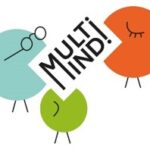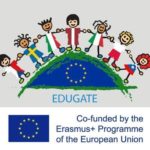In the Bicocca Language Group, we investigate e promote Bilingualism through many projects and studies.
Some of them are described on this page:
Bilingualism Matters
 BILINGUALISM MATTERS @ Milano-Bicocca (BM@Milan-Bicocca) è one of the Italian branches of the international organization Bilingualism Matters, founded and headed by Antonella Sorace from The University of Edinburgh. The project offers a free space of information and promotion about Bilingualism and Multilingualism. Our aim is to raise awareness on the issues linked to this phenomenon, delivering accurate and clear information base on the results of the scientific community. Our service is dedicated to families, teachers, educators, and administrators operating in the territory.
BILINGUALISM MATTERS @ Milano-Bicocca (BM@Milan-Bicocca) è one of the Italian branches of the international organization Bilingualism Matters, founded and headed by Antonella Sorace from The University of Edinburgh. The project offers a free space of information and promotion about Bilingualism and Multilingualism. Our aim is to raise awareness on the issues linked to this phenomenon, delivering accurate and clear information base on the results of the scientific community. Our service is dedicated to families, teachers, educators, and administrators operating in the territory.
This branch is active since 2014 and it is managed by some members of the Psychology Department who do research on this field, supported by Ph.D. students and external collaborators. Beyond the general issues concerning bilingualism, our branch offers specific expertise on bimodal bilingualism (spoken language/sign language) and on the problems linked to bilingualism and language impairments.
Who we are?
Beatrice Giustolisi (Director of the branch)
Francesca Foppolo (Member of the Board of Directors)
Maria Teresa Guasti
Fabrizio Arosio
Jasmijn Bosch
Silvia Silleresi
Sara Trovato
Giulia Bettelli
Maren Eikerling
Simone Sulpizio
Emily Stanford
Letizia Raminelli
Chiara Saponaro
What do we do?
- INVESTIGATE through scientific methods the effects of bilingual exposition in children in different linguistic, familiar, and educational context and the most effective methods to support the development of bilingualism in children;
- DISSEMINATE updated information on bilingualism, supported by the most recent international studies, to INCREASE knowledge and awareness on the benefits of bilingualism;
- ANSWER to the questions of parents, teachers, and operators that face bilingual or multilingual context, or even bimodal bilingualism;
- PROMOTE discussion and knowledge opportunities among different bilingual communities and different local realities that operate in bilingual contexts.
To whom are we addressing?
To parents, teachers, educators, and administrators operating on the territory of Milan and in Lombardia who have interest, doubts and concerns about raising and educating a bilingual child.
We are available to organize educational and/or informative meetings in schools or associations operating on the territory.
We need YOU too!
We are looking for institutions and schools available to collaborate with us in the implementation of our scientific studies, that cannot be realised without participants! If you want to give a contribution to research, write us!
Email contact: bilingualism-matters@unimib.it
Meet Me Tonight 2020
For the European Researchers Night 2020, Bilingualism Matters @Milan was represented at Meet Me Tonight, an event in which Milanese universities communicate their research to the general public. Some of the members of Bilingualism Matters @Milan organized an online activity about bilingualism, aimed at parents, children and teachers, and anyone else who might be interested in bilingualism. The event, called Bilinguismo, un mondo da scoprire! (‘Bilingualism, a world to discover!’), was held online on November 27 and 28, and around 200 people participated.
The activity consisted of a quiz addressing persistent myths as well as fun facts related to bilingualism. Several topics were covered, including language development in bilingual children, second language learning, potential cognitive benefits of bilingualism, the distinction between languages and dialects, and bilingualism in people who use a sign language. The quiz was followed by a mini workshop Italian Sign Language, in which participants learned to recognize different signs.
Here are the take-home messages from the event:
- There are no risks or disadvantages in growing up bilingually.
- There are many advantages: the most important one is being able to communicate with more people and having access to two cultures.
- But input is fundamental, so use and pass on the language in which you feel most comfortable.
- All languages have the same value (including dialects and sign languages).
For those who attended the event HERE you can find the presentation.
We have also answered the questions asked by the participants during the event. HERE you can find the document with questions and answers about bilingualism and HERE you can find the printable version.
MultiMind
 MultiMind is an international and multidisciplinary training network on multilingualism, which aims to train early stage researchers, while seeking fundamental breakthroughs in multilingualism research. Its main scientific objectives are to investigate the effect of language learning on cognition and creativity, language processing in the multilingual brain, multilingualism and social cognition, multilingualism in children with language impairment, and the efficiency of teaching methods for language and literacy education of refugees.
MultiMind is an international and multidisciplinary training network on multilingualism, which aims to train early stage researchers, while seeking fundamental breakthroughs in multilingualism research. Its main scientific objectives are to investigate the effect of language learning on cognition and creativity, language processing in the multilingual brain, multilingualism and social cognition, multilingualism in children with language impairment, and the efficiency of teaching methods for language and literacy education of refugees.
The three PhD students working as MultiMind early stage researchers at our University investigate language and literacy development in different groups of bilingual children, and how to detect dyslexia and language impairments in bilingual Italian-speaking children. One project is based at the Research Hospital IRCCS E. Medea – La Nostra Famiglia (Bosisio Parini), aiming to prepare computerized tools to automatically screen dyslexia and language impairments in the languages spoken by multilingual children.
For more information about MultiMind, see www.multilingualmind.eu. The project has received funding from the European Union‘s Horizon2020 research and innovation programme under the Marie Skłodowska Curie grant agreement No 765556.
Here you can find a flyer that provides general information on the MultiMind project.
Through this link, you can subscribe to MultiMind’s Newsletter.
Past projects:
EDUGATE
 Some members of the BIL group were also part of the Erasmus+ Project EDUGATE. The Erasmus+ Project ‘EDUGATE – Multilingual teaching in early childhood education and care’ is aimed at encouraging a unified language education program in the pre-school years in Europe. On the one hand, the project supports first language development, while promoting on the other hand the acquisition of foreign (for example, English) or L2 languages (as in the case of immigrant children).
Some members of the BIL group were also part of the Erasmus+ Project EDUGATE. The Erasmus+ Project ‘EDUGATE – Multilingual teaching in early childhood education and care’ is aimed at encouraging a unified language education program in the pre-school years in Europe. On the one hand, the project supports first language development, while promoting on the other hand the acquisition of foreign (for example, English) or L2 languages (as in the case of immigrant children).